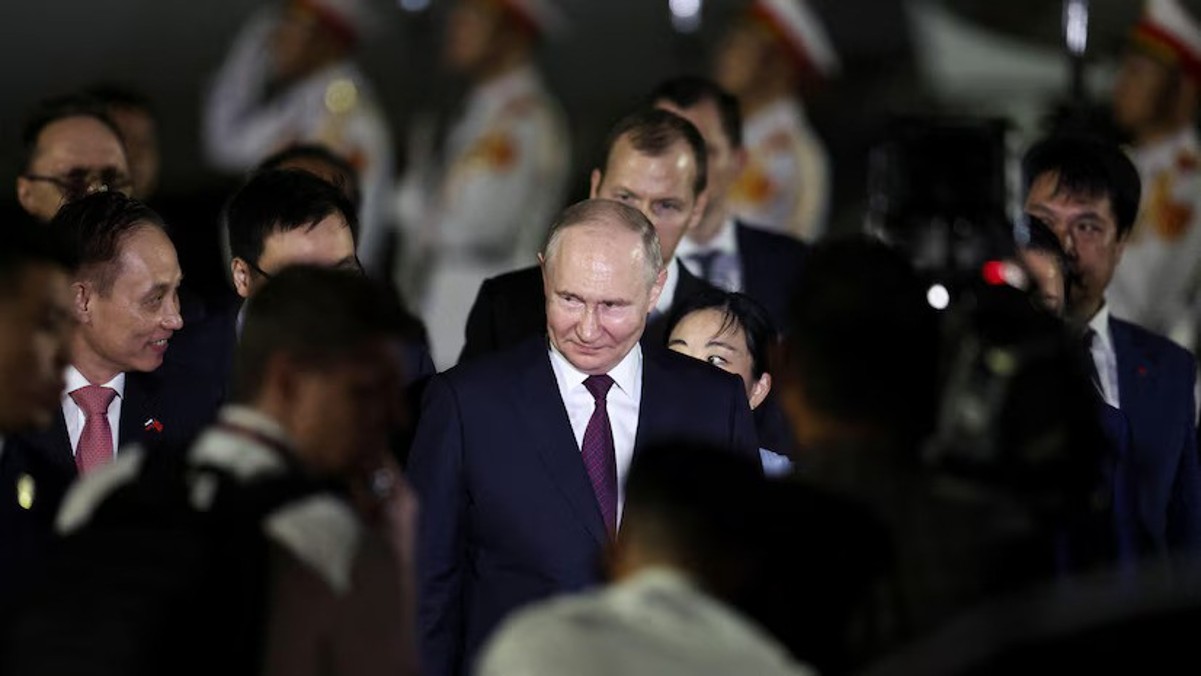Since the outbreak of the Russia-Ukraine war, the West has imposed a raft of sanctions aimed at punishing Moscow.
Yet, the World Bank is now classifying Russia as a ‘high-income’ country.
But how did this happen? And what does this mean for the future?
Let’s take a closer look:
What happened?
As per SCMP, the World Bank on Monday announced that Russia is now a high-income country.
Russia was earlier classified as an upper-middle-income nation.
The World Bank defines upper middle-income economies are those with a GNI per capita – the dollar value of a country’s final income in a year, divided by its population – between $4,466 and $13,845.
It classifies high-income economies as those with a GNI per capita of $13,846 or more.
Russia in 2023 earned $14,250 per person on a gross national income basis.
“Economic activity in Russia was influenced by a large increase in military-related activity in 2023,” World Bank economists wrote.
The World Bank report comes in the backdrop of news from Russia which puts down the growth to an increase in demand for military goods and services.
Russia saw its trade increase seven per cent last year.
Meanwhile its financial and construction sectors saw growth of 6.6 per cent and 3.6 per cent respectively.
Russia’s real GDP is at 3.6 per cent.
The war has also put more money into the hands of poorer Russians, as per SCMP.
As per Business Insider, those in lower-income neighbourhoods are living better lifestyles.
Impact Shorts
More ShortsAll this even further complicates the future of the war.
Russia’s banks have reported higher deposits in areas with high military recruitment.
Professor Alexander Dynkin, Russian economist and president of Primakov National Research Institute of World Economy and International Relations, last month told ET that no other nation including China could have withstood such sanctions.
“We are self-sufficient in energy resources, raw materials, and food. We have a skilled labour market. Our fundamental science is world class. Our national innovation system is successfully solving the tasks of technological sovereignty and using vacated market niches.”
The newspaper quoted European Bank for Reconstruction and Development (EBRD) as saying that Russia’s economy is expected to grow further this year.
It predicted Russia’s economy would expand at 2.5 per cent in 2024 – a massive increase from 1 per cent in September.
‘Economy at risk of overheating’
However, experts say certain challenges remain.
“I think it was unrealistic to expect that sanctions against Russia would lead to a deep economic and financial crisis, as many had hoped,” EBRD chief economist Beata Javorcik told AFP in May. Russia has “refocused its economy on the war effort”, she noted.
“So this is leading to faster growth” but “is this growth translating into greater wellbeing of its people? That’s doubtful.”
“Russian growth in the medium term will be lower than it would have been in the absence of sanctions,” she said.
The governor of the country’s central bank has also warned that the economy could be at risk of ‘overheating.’
“The economy is expanding so rapidly because it is using almost all the resources available,” Elvira Nabiullina said as per Business Insider.
The war has also taken manpower away from other sectors – leaving a labour gap and increasing inflation.
Interestingly, Ukraine also moved up a notch – from a lower-middle-income country to an upper-middle-income country.
“While Ukraine’s economy was significantly impaired by Russia’s invasion, real growth in 2023 was driven by construction activity (24.6 per cent), reflecting a sizeable increase in investment spending (52.9 per cent) supporting Ukraine’s reconstruction effort in the wake of ongoing destruction,” the World Bank said as per SCMP.
As per Business Insider, the World Bank also upgraded Bulgaria and Palau to high-income countries.
The two nations, which were upper-middle-income countries, have witnessed multiple years of post-pandemic growth.
Just one territory was downgraded – West Bank and Gaza.
“The conflict in the Middle East began in October 2023, and while the impact on West Bank and Gaza was limited to the fourth quarter, its scale was nonetheless sufficient to lead to a 9.2 per cent drop in nominal GDP,” the World Bank economists wrote.
With inputs from agencies


)

)
)
)
)
)
)
)
)



